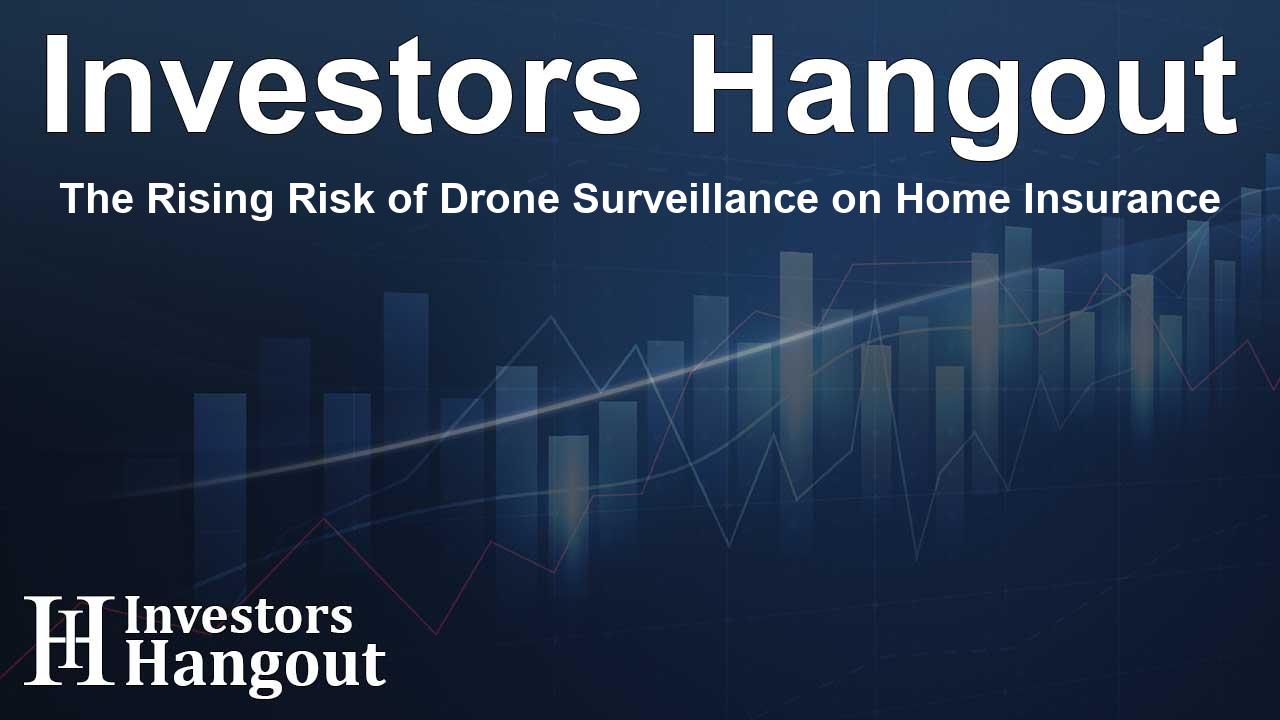The Rising Risk of Drone Surveillance on Home Insurance

Understanding the Home Insurance Crisis
Home insurance is increasingly becoming a challenge for many homeowners. With soaring costs and stricter restrictions, the landscape of home ownership is shifting dramatically. One of the latest issues arising is the use of drone surveillance by insurers. As traditional ways of assessing property risk evolve, this new technology brings a wave of concern among policyholders.
Drone Inspections and Policy Cancellations
In recent years, an alarming trend has emerged: homeowners receiving cancellation notices due to drone footage of their properties. Insurers are employing drones to inspect homes as a method to minimize their losses, which has resulted in people being blindsided by policy cancellations based on drone images.
A Real-Life Experience
Consider the case of a homeowner who, despite years of timely premium payments and never filing a claim, finds a cancellation notice in their mailbox referencing drone footage of their roof. Such was the case for a Florida resident who learned that a drone's impressions led to the termination of his longstanding insurance policy.
This homeowner, Mike Arman, expressed disbelief upon learning that the insurer deemed his six-year-old roof to be deteriorating from an aerial perspective. A roof typically possesses a lifespan of 20-30 years under normal conditions, which made this assessment seem overly harsh and unfounded. After all, how could a distant drone be the basis for such a critical decision?
The Implications of Drone Technology
The rise of drones as a technological advancement in the insurance industry has its benefits, allowing companies to inspect more homes swiftly. However, the results can be opaque and lack detailed explanations for homeowners. As the inspection process moves away from a direct human element, many find themselves questioning the accuracy and ethics behind such surveillance.
Legal Concerns
Are drone inspections even legal? This question weighs heavily on many struggling homeowners who feel spaied upon without consent. Some experts advocate for updated insurance regulations, suggesting that current laws have not kept pace with these advancements. Homeowners are encouraged to take precautionary measures, such as maintaining their yards and preparing for unexpected inspections.
The Financial Landscape for Homeowners
The situation has deteriorated due to significant market pressures. In states like Florida, countless homeowners now only have the option of enrolling in state-sponsored insurance programs due to the mass exit of private insurers. When the actual costs of maintaining coverage are considered, the challenge of affordability looms larger than ever.
Shifting back to Mike Arman, he attempted to provide documented evidence of his roof’s condition, only to learn that even those efforts did not persuade his insurer to reverse the cancellation. With his initial insurance policy nullified, he sought coverage with Citizens Insurance, only to encounter higher premiums than before due to their own drone assessments.
Technological Advantages vs. Homeowner Privacy
Insurers contend that drones simplify the process and provide a more effective assessment than human inspections. Some industry representatives assert that drones can offer 10-20 times better accuracy. However, consumers feel they face an alarming lack of transparency in policy enforcement.
The key takeaway here is that while drone technology presents advantages from an operational viewpoint, it does not come without its drawbacks, particularly regarding privacy and the informal nature of policy evaluations.
The Future of Insurance Inspections
As drone surveillance continues to shape the insurance landscape, it's essential for homeowners to remain vigilant. Ensuring the safety and soundness of their property while maintaining open lines of communication with their insurance providers could make a significant difference in navigating this evolving environment.
Ultimately, how insurers leverage technology will profoundly affect homeowners’ experiences and financial well-being. Those proactive in understanding their policies and the risks involved may find themselves better suited to handle the unforeseen challenges that arise.
Frequently Asked Questions
What role does drone surveillance play in home insurance?
Insurers use drones to assess property conditions and risks, which can lead to cancellations or premium increases based on their findings.
Can homeowners contest cancellation notices based on drone footage?
Homeowners may contest such notices by providing evidence of their property's condition, but outcomes vary by insurer.
Are drone inspections considered legal for home insurance purposes?
Yes, drone inspections are legal; however, the legality raises concerns regarding privacy and regulations that need to be updated.
How can homeowners prepare for potential drone inspections?
Homeowners can maintain their properties, clear their yards, and stay informed about their insurance policies to minimize risks.
What alternatives do homeowners have for insurance in areas affected by rising costs?
Many may need to consider state-sponsored insurance options or engage with smaller insurers that still offer competitive rates.
About Investors Hangout
Investors Hangout is a leading online stock forum for financial discussion and learning, offering a wide range of free tools and resources. It draws in traders of all levels, who exchange market knowledge, investigate trading tactics, and keep an eye on industry developments in real time. Featuring financial articles, stock message boards, quotes, charts, company profiles, and live news updates. Through cooperative learning and a wealth of informational resources, it helps users from novices creating their first portfolios to experts honing their techniques. Join Investors Hangout today: https://investorshangout.com/
Disclaimer: The content of this article is solely for general informational purposes only; it does not represent legal, financial, or investment advice. Investors Hangout does not offer financial advice; the author is not a licensed financial advisor. Consult a qualified advisor before making any financial or investment decisions based on this article. The author's interpretation of publicly available data shapes the opinions presented here; as a result, they should not be taken as advice to purchase, sell, or hold any securities mentioned or any other investments. The author does not guarantee the accuracy, completeness, or timeliness of any material, providing it "as is." Information and market conditions may change; past performance is not indicative of future outcomes. If any of the material offered here is inaccurate, please contact us for corrections.